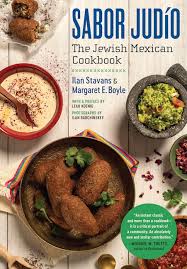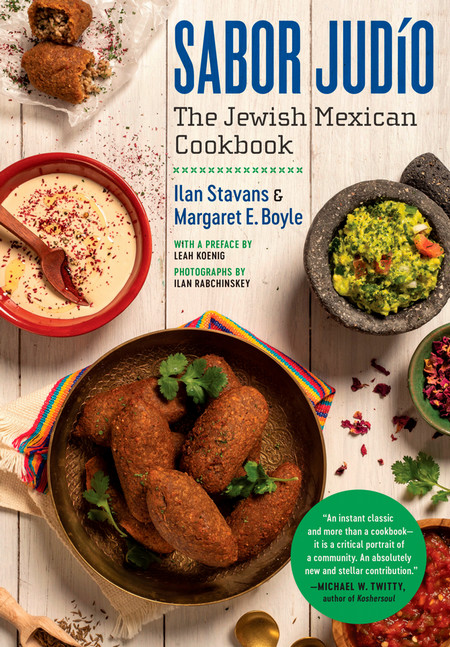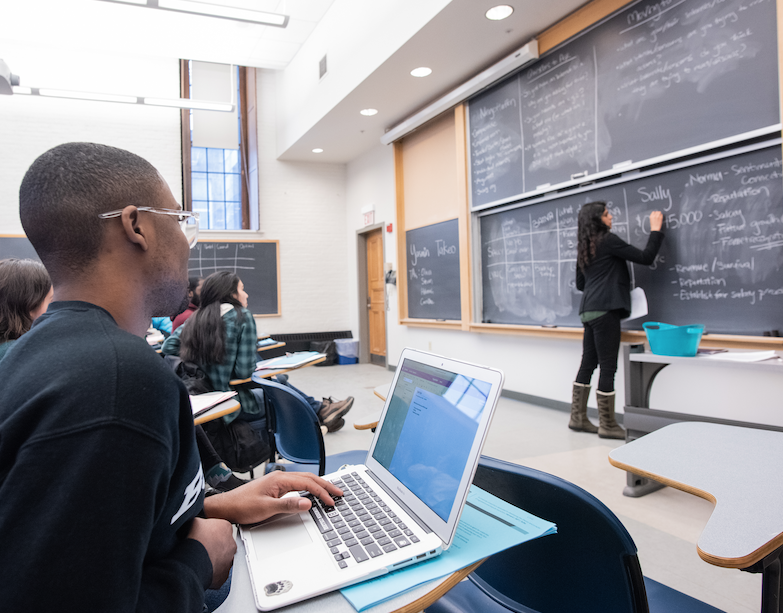Graduates of Latin American Studies Show Breadth of Careers
By Rebecca GoldfineThe 2018 Kemp Symposium, called Border Crossings: A Symposium Celebrating the Career of Professor Allen Wells, brought in both experts in Wells’ field and Bowdoin graduates to present brief talks on their research or work. Below are brief profiles of the Bowdoin alumni who participated.
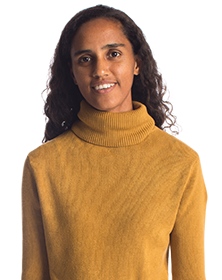
Yanna Muriel ’05, Culture of Health Leader, Robert Wood Johnson Foundation
Muriel is an organic farming advocate and educator in Puerto Rico. She is also a farmer, growing citrus and guava trees, vegetables, and flowers on her family’s land. The New York Times in 2016 profiled Muriel, describing her efforts to replace Puerto Rico’s vast imports of food with produce grown by its own farmers. Muriel is active with IFOAM (International Federation of Organic Agriculture Movements), and served as president of Organización Boricuá de Agricultura Eco-orgánica, the oldest organic farming organization in Puerto Rico. She co-organizes the Old San Juan weekly organic farmer’s market, as well as works with VisitRico, the only agro-tourism platform in Puerto Rico. She majored in Latin American studies and Spanish at Bowdoin.
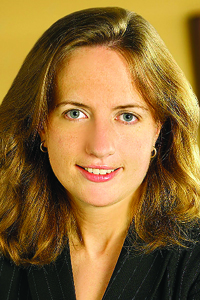
Sarah Edgecomb ’03, Immigration attorney, Edgecomb Law LLC
Edgecomb’s law practice in Boston is focused on employment-based immigration. She helps artists, scientists, scholars, and entrepreneurs from Latin America and around the world settle and work in the United States. At the symposium, she spoke about the recent problems highly skilled foreigners have been facing in trying to obtain U.S. visas, despite their educational and professional accomplishments. Edgecomb graduated from Bowdoin with a double major in Latin American studies and Spanish, and a minor in government. She earned a law degree from University of Miami, and a master’s of law in international legal studies from New York University’s law school.
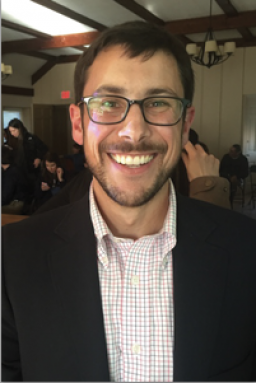
Michael Lettieri ’05, Fellow at the Center for US-Mexican Studies, UC San Diego
Lettieri is a fellow at the Center for U.S.-Mexican Studies at the University of California, San Diego, which is where he earned his PhD in 2014 with a specialization in modern Mexican history. His academic interests include authoritarian political practices, journalism, and urban informality and corruption. He has previously worked as a researcher at the Trans-Border Institute developing projects on human-rights issues around immigration, the drug war, and gender-based violence. He is currently working on a book on regime loyalists and political entrepreneurs in 20th-century Mexico. Lettieri visited Bowdoin in 2016 to speak about violence in Mexico, and on this most recent visit, he spoke about narrative approaches—numerical, historical, popular, and testimonial—to “telling the history of the drug war.”
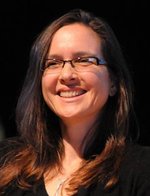
Michele Greet ’93, Associate Professor of Art History, George Mason University
Along with being an associate professor of art history, Greet is the director of George Mason’s art history program. She is also president of the association of Latin American art. Her two books are Transatlantic Encounters: Latin American Artists in Paris between the Wars, 1918-1939, published by Yale University Press last spring, and Beyond National Identity: Pictorial Indigenism as a Modernist Strategy in Andean Art, 1920-1960, published by Penn State University Press in 2009. Greet received her PhD in modern Latin American art from the Institute of Fine Arts, New York University, in 2004. At the symposium, where she gave a talk on a Brazilian artist’s work in Paris, she said she felt as if she were returning home “to the place where it all began,” where her career was set in motion.
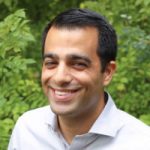
Ian Yaffe ’09, Executive Director, Mano en Mano/Hand in Hand
Since graduating, Yaffe has worked alongside Latino farming communities across rural Maine, helping them access housing, social services, and education, and also assisting them in advocating for civil rights and equity in their work and communities. Migrant farmers come to Maine primarily to harvest blueberries or help in the wreath-making business. Over the yeas, some of these families have settled permanently in rural Maine. Yaffe also serves in the Coast Guard reserves and is earning a master’s in public administration from University of Washington. Yaffe majored in Latin American studies and minored in education at Bowdoin.
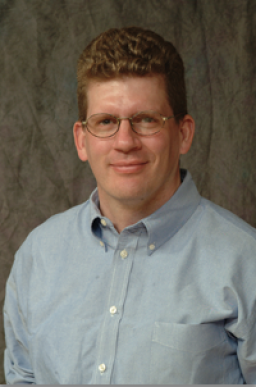
Stanley “Chip” Blake ’90, Associate Professor of History, Ohio State University-Lima
A Maine native, Blake majored in history and government as a Bowdoin undergraduate. He met Wells in 1988, when Wells first started teaching at Bowdoin. “He turned me into a Latin Americanist in a short space of a year and a half,” Blake recalled. Blake received his PhD in history from the State University of New York, and specializes in modern Brazilian and Latin American history. He is currently working on a book about modernism and popular culture in Recife, Brazil, in the 1920s and 1930. At the symposium, he spoke about four silent films from that era and what they say about family, race, and space. His first book, The Vigorous Core of Our Nationality: Race and Regional Identity in Northeastern Brazil, was published in 2011 by the University of Pittsburgh Press.
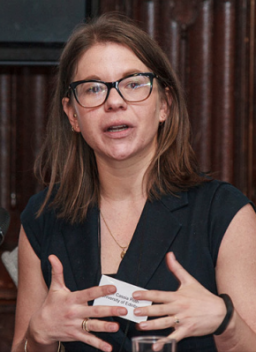
Cassia Roth ’08, Assistant Professor of History & Latin American and Caribbean Studies Institute, University of Georgia
At Bowdoin, Roth was a Spanish and Latin American studies major, and a women and gender studies minor. Before starting her tenure-track position, she had two postdoctoral fellowships in Scotland and Brazil. Her current book, on reproductive health in relation to legal and medical policy in early 20th-century Brazil, is currently under review at Stanford University Press. She gave a talk on fertility control of slaves and free women in Brazil. On reflecting on how Allen Wells has shaped her scholarship, she said: “He pushed me to think always about the so-what question…[and how] our historical work can and should influence public policy.” She said she learned as an undergraduate that best historical practice requires meticulous research, clear writing, and empathy for the people whose lives historians are studying.
